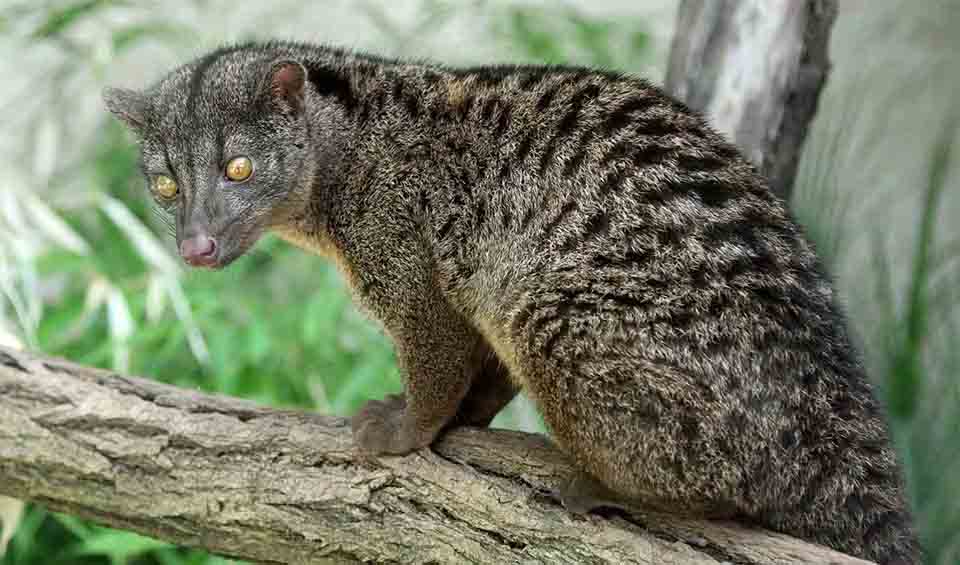Nandiniidae – African palm civet
Live in harmony with a parasite causes the deadly sleeping sickness in humans
You might easily spot these naughty animals a few hours before sunrise or after sunset – showing their love for the nightlife. These animals have a distinct lifestyle that revolves around their nocturnal habits. They’re most active during the early hours before dawn or late hours after dusk, taking advantage of the safety provided by the night. This strategy helps them steer clear of predators, which might include humans. During daylight, they’re masters of disguise, blending into their surroundings or catching up on sleep in the safety of dense foliage or tree hollows, away from the prying eyes of danger.
Communication among African palm civets is an interesting mix of olfactory (smell) and auditory (sound) signals. They have special glands on their lower abdomen, chin, and feet, which secrete a unique musk. This musk is not just any ordinary smell; it serves various purposes, from marking its territory to signaling its reproductive status. This means they can leave a scent trail as a message to others of their kind. In addition to these scent messages, they communicate through vocalizations, such as hooting sounds, which can convey messages ranging from alerting others to danger to social interactions.
However, the intriguing aspects of their lives also make them targets for illegal hunters. Their unique scent, sought after in the perfume industry, their meat, considered a delicacy in some places, and their warm, dense fur, highly valued for its quality, place them in danger. Female civets, particularly when nursing, produce a yellowish secretion that is thought to communicate with other civets, adding to the reasons they are hunted.
Despite these threats, African palm civets are versatile in their diet, which aids their survival. They are not fussy eaters; they enjoy a varied diet of fruits, insects, and small animals. This flexibility means they can adapt to different environments by making the most available food sources. This helps them survive and plays a crucial role in their ecosystem, such as controlling insect populations and aiding in seed dispersal for many plant species.
Genera in this family
Live in harmony with a parasite causes the deadly sleeping sickness in humans

